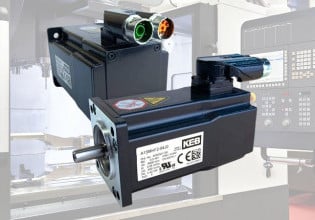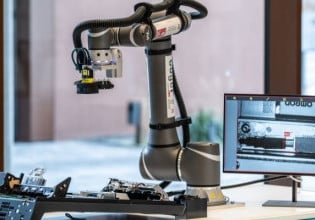M
> > But, here, we're not talking about sharing a tool to solve a problem we
> > have internally, we're talking about giving away our flagship product.
>
> The real product in Automation is ``machine works''.
But that's only the "real product" for the factory floor. While I'm sure Intellution would really like for a machine that one of their systems is installed on to work well, and at least in part because of their HMI package, their product is the software license. If they get paid for the license, then they've gotten the sale. Period. Whether the machine works or not is an issue for the plant to deal with.
So the "real product" is very dependent on where in the line you are standing. And as I mentioned in an earlier post, now we're all standing a lot closer to the edge of interfering with profitability than when all this "Open Source" movement started. I'd venture to say that the number of people reading this list who are independently wealthy and only do process automation for the fun of it can be counted on one hand. So like it or not, money is at stake here.
[...]
> > Well frankly, the customer buys the "stuff" irrespective of whether it's
> > free or a million bucks. I don't absorb any of the cost unless it's a
> > calculated maneuver to increase my customer base one way or another, like
> > grumbling about the cost of RSLogix when I write the check.
>
> The customer will probably prefer integrators that minimize overall cost;
> if you can get the "stuff" for free, there's one way to decrease overall
> cost without decreasing your share.
True, but there's no "stuff" for free anywhere. The last time I checked there were no elves writing code and releasing it under GPL so we can all profit. All the GPL code cost somebody, somewhere some real time and effort. I still agree that once we're "on the other side" with real working GPL systems life will be better for the end user. But getting there will be painful to somebody.
> Certainly there will be some rearrangements in the industry, as players who
> used to make a living by selling software-as-product will have to adjust;
> but the flagship product automation - making machines work - will remain,
> and possibly pick up if per-job costs go down.
Actually we're beginning to see this already. Distributors which used to be "resellers" of automation software, but didn't have any in-house integration staff first started chewing into our business by offering "consulting" services about how to configure everything. (Wow! Guess what products they recommend!) Now at least one is offering "consulting" services to help a plant build the core applications. Our strategy has been to point out that their in-house group's real job is to sell more licenses, not assess the plant's real needs. Sometimes this works, and sometimes it doesn't.
Michael
--
Michael R. Batchelor - Industrial Informatics & Instrumentation, Inc.
Linux is like a wigwam...
No windows, no gates.
Apache inside.
> > have internally, we're talking about giving away our flagship product.
>
> The real product in Automation is ``machine works''.
But that's only the "real product" for the factory floor. While I'm sure Intellution would really like for a machine that one of their systems is installed on to work well, and at least in part because of their HMI package, their product is the software license. If they get paid for the license, then they've gotten the sale. Period. Whether the machine works or not is an issue for the plant to deal with.
So the "real product" is very dependent on where in the line you are standing. And as I mentioned in an earlier post, now we're all standing a lot closer to the edge of interfering with profitability than when all this "Open Source" movement started. I'd venture to say that the number of people reading this list who are independently wealthy and only do process automation for the fun of it can be counted on one hand. So like it or not, money is at stake here.
[...]
> > Well frankly, the customer buys the "stuff" irrespective of whether it's
> > free or a million bucks. I don't absorb any of the cost unless it's a
> > calculated maneuver to increase my customer base one way or another, like
> > grumbling about the cost of RSLogix when I write the check.
>
> The customer will probably prefer integrators that minimize overall cost;
> if you can get the "stuff" for free, there's one way to decrease overall
> cost without decreasing your share.
True, but there's no "stuff" for free anywhere. The last time I checked there were no elves writing code and releasing it under GPL so we can all profit. All the GPL code cost somebody, somewhere some real time and effort. I still agree that once we're "on the other side" with real working GPL systems life will be better for the end user. But getting there will be painful to somebody.
> Certainly there will be some rearrangements in the industry, as players who
> used to make a living by selling software-as-product will have to adjust;
> but the flagship product automation - making machines work - will remain,
> and possibly pick up if per-job costs go down.
Actually we're beginning to see this already. Distributors which used to be "resellers" of automation software, but didn't have any in-house integration staff first started chewing into our business by offering "consulting" services about how to configure everything. (Wow! Guess what products they recommend!) Now at least one is offering "consulting" services to help a plant build the core applications. Our strategy has been to point out that their in-house group's real job is to sell more licenses, not assess the plant's real needs. Sometimes this works, and sometimes it doesn't.
Michael
--
Michael R. Batchelor - Industrial Informatics & Instrumentation, Inc.
Linux is like a wigwam...
No windows, no gates.
Apache inside.






